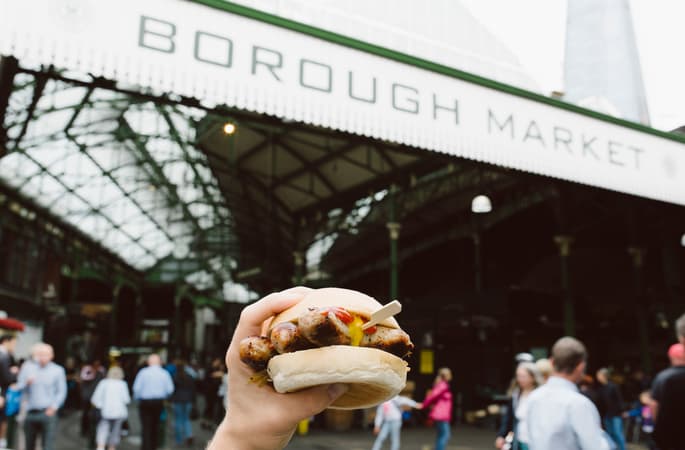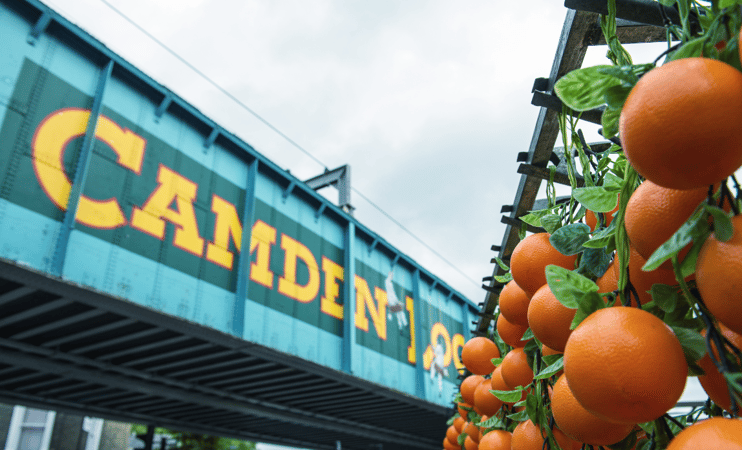Location can play a big part in how successful a business is, but it can also have a significant impact on the well-being of owners and employees. Where you decide to set up shop can affect things like work-life balance, income, and general life satisfaction, which can all feed into happiness levels. So, where is the happiest place for business owners in the UK?
To find out, we’ve analysed 30 of the most populated cities across the country, looking at factors such as how happy residents are, the number of hours worked per week, the cost of renting both a co-working space and a retail space, and the average amount of money and time spent commuting in each location. The team has also provided some top tips for choosing the right location for you and your company.
The happiest places to be a business owner in the UK
1. Luton
Taking the crown as the happiest place for business owners in the UK is Luton.
A key factor is that Luton locals report high levels of happiness, with the average resident happiness score being 7.64 out of 10. High happiness levels are a positive indicator that business owners and employees may find good contentment and satisfaction living in the city.
People also tend to spend around 32.8 hours at work each week in the city, and a shorter working week is perhaps reflective of the positive work-life balance people in the city might have. However, residents in the East of England do spend around six hours travelling to work each week. It’s important to note that average commute times were calculated by region rather than city in the study. Commute times are definitely something to consider when finding a location for your business. You need to think about whether you’d be okay with a long commute, or whether this might impact the overall well-being of you and your employees.
Costs for things like rent or utilities are also important factors to consider. For those looking for a bricks-and-mortar location, Luton boasts the cheapest price per square metre to rent retail space, at just 98p per year. For those looking for office space, co-working spaces will cost around £144 per month.
Given the city’s proximity to London, Luton has become a great place to live, work, and invest. If you think it might be the right place for you, Step Forward Luton is a dedicated business advice platform in the city, supporting business growth in the town, and offering support to companies of all shapes and sizes.
2. Preston
Preston has come in second place, and the northern city also experiences a high resident happiness score of 7.79, indicating they are happy living and working in the area.
No one wants to spend a fortune getting to work, and commuting is a little cheaper here than in Luton, with a monthly pass costing around £51, though residents do tend to commute for around six hours 20 minutes each week in the North West.
When it comes to office space, a co-working spot costs around £203, which is the most expensive of all cities in the top five, and retail space will cost £10.19 per square metre for the year.
If you are looking to start your business in the city, Boost is Lancashire’s Business Growth Hub. They offer a range of funded support services, and also have business advisors on hand for any advice and guidance you might need to start and grow your company.
3. Southend-on-Sea
The East of England is clearly a good place for business owners to set up shop, with Southend-on-Sea coming in third place. Those living in the coastal city only tend to work 31.2 hours per week, which is the second lowest amount of any city analysed, and residents have a strong resident happiness score of 7.31.
Commuting in the city is also relatively affordable, with a monthly travel pass costing around £45, just over £2 per working day.
There are also various fully-funded business initiatives in the city, including the Deyton Bell: Southend Business Lift-Off which supports early-stage companies with development and growth. For small business owners looking to set up in a co-working space in the city, you’re looking at relatively affordable fees of around £173 per month. For those looking for a retail location, Southend-on-Sea businesses can expect to pay £16.55 to rent per square metre each year.
4. Bradford
In fourth place is Bradford, thanks to affordable travel and office costs. In particular, Bradford has the second cheapest fees for co-working spaces (£113 per month) of all locations in the study, and a square metre of retail space costs £15.41 per year.
A monthly travel pass costs around £57, plus commute times in Yorkshire are significantly quicker than in the East of England, with residents spending around five hours 20 minutes per week travelling to work.
While resident happiness levels are slightly lower in Bradford than in the rest of the top five, with a score of 7.24, it’s important to note that the ONS considers anything above 7 to be high. Bradford also has a dedicated support platform, Invest in Bradford, to help any businesses looking to start, re-locate, and expand in the area.
5. Plymouth
Plymouth rounds off the top five happiest cities in the UK for business owners. Workers in Plymouth perhaps have the best work-life balance of all cities analysed, boasting the shortest average working week of 31.1 hours and the South West has a commute time of around five and a half hours per week. Plymouth is also home to some very happy locals, with a high resident happiness score of 7.71 — the second-highest score of all cities analysed.
For those who are looking to lease retail space, prices in Plymouth are similar to Bradford, with rent per square metre, at £15.56 for the year. Plymouth also has an initiative dedicated to helping local retailers on the high-street. Shop 4 Plymouth is all about supporting independent businesses and connecting small business owners.
|
Rank |
City |
Resident happiness score* |
Cost of monthly travel pass (£) |
Avg. time commuting a week (hours) |
Avg. working hours a week |
Cost of co-working space |
Cost of sqm of retail space a year |
|
1 |
Luton |
7.64 |
£68.37 |
5.93 |
32.8 |
£144.00 |
£0.98 |
|
2 |
Preston |
7.79 |
£51.30 |
6.33 |
33.1 |
£203.00 |
£10.19 |
|
3 |
Southend-on-Sea |
7.31 |
£45.00 |
5.93 |
31.2 |
£173.00 |
£16.55 |
|
4 |
Bradford |
7.24 |
£57.40 |
5.30 |
32.0 |
£113.25 |
£15.41 |
|
5 |
Plymouth |
7.71 |
£55.50 |
5.40 |
31.1 |
£371.75 |
£15.56 |
|
6 |
Sunderland |
7.33 |
£27.00 |
5.09 |
33.4 |
£149.50 |
£9.90 |
|
7 |
Blackpool |
7.31 |
£55.00 |
6.33 |
32.4 |
£132.33 |
£13.45 |
|
8 |
Liverpool |
7.34 |
£65.39 |
6.33 |
33.2 |
£123.10 |
£11.75 |
|
9 |
Swansea |
7.34 |
£72.00 |
6.66 |
32.2 |
£203.00 |
£15.11 |
|
10 |
Cardiff |
7.10 |
£54.93 |
6.66 |
33.0 |
£118.00 |
£8.10 |
UK Resident Happiness levels are scored out of 10, and range from 8.22 - 6.16
The least happy places to be a business owner in the UK
1. London
London has ranked as the least happy place to be a business owner, thanks to high costs and very long commute times.
A monthly travel pass in the capital will set you back £182, the most expensive price by far compared with any other city. Londoners tend to spend nearly eight hours per week travelling to work, and they also have one of the longest working weeks, averaging 33.8 hours.
Co-working spaces in the capital city are also some of the most expensive of all locations analysed, averaging £331 per month. Similarly, a square metre of retail space will cost £22.62 per year - the fourth most expensive out of the cities we looked at. People living in London do have a resident happiness score of 7.32 however, which is just below the national average.
2. Derby
Derby has come in second. The East Midlands city isn’t the most affordable place to set up shop, with co-working spaces in the city costing around £376 per month, which is the most expensive of any city analysed. Leasing a retail space in Derby will cost you £15.49 per square metre for the year.
However, commute times in the East Midlands are slightly lower than in other areas of the UK, with workers tending to spend around five hours and 20 minutes each week travelling to work.
3. Edinburgh
Rounding off the top three for most unhappiest locations for business owners is Edinburgh. Retail space will set you back £17.69 per square metre for the year, though co-working prices are a little more affordable at £175 per month.
People living in Scotland tend to see the longest commute times of all regions in the UK, averaging 11 and a half hours each week. Workers in Edinburgh also have similar working weeks to those in London, dedicating around 33.5 hours to work.
|
Rank |
City |
Resident happiness score* |
Cost of monthly travel pass) |
Avg. time commuting a week (hours) |
Avg. working hours a week |
Cost of co-working space |
Cost of sqm of retail space a year |
|
1 |
London |
7.32 |
£182.28 |
7.83 |
33.8 |
£330.70 |
£22.62 |
|
2 |
Derby |
7.28 |
£58.00 |
5.34 |
33.2 |
£375.80 |
£15.49 |
|
3 |
Edinburgh |
7.25 |
£59.93 |
11.52 |
33.5 |
£174.67 |
£17.69 |
|
4 |
Coventry |
7.45 |
£49.16 |
7.30 |
34.4 |
£111.50 |
£57.37 |
|
5 |
Manchester |
7.26 |
£79.84 |
6.33 |
34.2 |
£167.20 |
£20.45 |
|
6 |
Stoke-on-Trent |
7.32 |
£65.00 |
7.30 |
34.1 |
£229.75 |
£8.13 |
|
7 |
Southampton |
7.07 |
£60.00 |
6.82 |
32.7 |
£216.30 |
£16.53 |
|
8 |
Birmingham |
7.18 |
£59.52 |
7.30 |
33.8 |
£164.67 |
£15.95 |
|
9 |
Milton Keynes |
7.40 |
£63.00 |
6.82 |
34.0 |
£191.50 |
£25.20 |
|
9 |
Newport |
7.13 |
£50.00 |
6.66 |
33.4 |
£237.67 |
£6.59 |
|
10 |
Wolverhampton |
7.49 |
£60.00 |
7.30 |
34.6 |
£200.80 |
£13.02 |
UK Resident Happiness levels are scored out of 10, and range from 8.22 - 6.16
Top tips for finding the perfect location for your business
Neel Sapat, Head of Commercial Operations at Capital on Tap says, “Choosing the right environment for you and your business is key to your success. But, with so many factors to consider, it can be a little overwhelming. With this in mind, we’ve put together some top tips to help small business owners pinpoint the perfect spot:
1. Think about accessibility
No matter what type of business you have, you need to think about how accessible a location might be.
If you’re a shop that relies on heavy foot traffic, then you need to find a location that’s easy for your customers to get to. On the other hand, if you have a lot of deliveries coming in from suppliers, it might be more cost-effective and convenient to be nearer to them, or at least close to main roads for easy access. Similarly, if you’re in an office or co-working space, you need to be in a good location for your client and employees.
Considering your employees is important too, as commute time is a big factor in where people might decide to work. Even if you're a very small business at the moment, if you plan on expanding you need to make sure the business is accessible to a wider team.
2. Assess the competition
As part of your business plan, you’ll probably have already scoped out your competition, but you need to determine whether being close to your competitors might be a help or a hindrance to your business.
It might be that having lots of competitors in your chosen area means there’s already an established customer base, and if you’re offering something unique to the market, then this might be beneficial as you can pick up new customers quickly. However, if it looks like the market is already too saturated in the area, this might not be the best place for your new business.
3. Consider your budget
Knowing your budget is also really important when finding the right location to set up shop. You need to be able to afford rent, bills, and utilities in the area, but you should also think about more hidden costs like whether you’ll need to travel to the space, or whether you might need to make renovations.
If you do feel like your money is a little tied up in the move, taking out a business credit card can give you greater financial freedom, freeing up cash flow so you can take your business to the next level. It will also offer you a better view over your finances so you can track spending and stay organised with your accounting.
4. Look at the potential for growth
You might be a small business at the moment, but if you plan on expanding in the future, you need to think about whether a location can accommodate that growth.
You need to consider things like whether your new space will have room for more employees if you decide to expand the team, or if there is space to bring in more stock or supply if you decide to diversify your offering. If the answer is no, then you also need to look at whether the area you choose has options for different sized offices or premises, so you can move when the time is right.
If you do decide to expand the business, you want to make sure there are talented people available to you. Think about the qualities you want in your employees and try to find a location where the workforce aligns with these. It could also help to speak with employment agencies in the area to gauge the market.
5. Consider yourself too
Of course, you need to be thinking about what is best for the business when choosing a location, but you should also consider yourself in this too. Would it make you happier to be close to friends or family, or do you like the idea of being around other small business owners for support?
It might be that a short commute is something really important to you, or even things like whether you’re close to your gym or your favourite neighbourhood could make a difference. Make sure you think about what will contribute to your happiness and well-being, and factor this into your overall decision.
Methodology & sources
Capital on Tap pulled together a seedlist of the 30 most populated cities in the UK. These were then ranked according to the following metrics:
Resident happiness index - to note, for London an average of the boroughs was created.
Average amount of time spent travelling per week - to note, the data was for regions as opposed to cities
Average working hours per week
Cost of a co-working space - average was taken from the first page of co-working spaces in each location
Cost of a square metre of retail rental space - average was taken from the first page of properties. Data was calculated per year.










